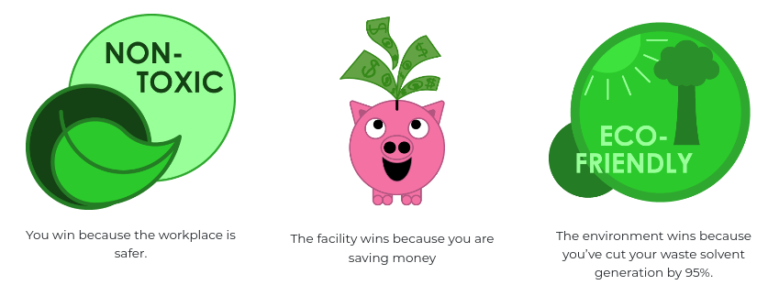
Can I recycle xylene substitutes?
by brblogQ: Our lab wants to switch to xylene substitutes. Can they be recycled? Actually, xylene substitutes are easier to recycle than xylene. Their higher boiling points make it easier to separate from the contaminants. The primary reason for using a xylene substitute is that they have much lower toxicity than xylene. Unfortunately, they are much […]

How long does a Solvent Recycler last?
by brblogQ: How many years will a solvent recycler last before it needs replacing? 10 to 15 years or…Longer. Do you remember your cell phone from 15 years ago? The lifespan of a recycler should be similar to the lifespan of the other equipment in you lab. Think about how long a tissue processer, stainer or […]

No, B/R recyclers do not require special ventilation or a special room. B/R Solvent recyclers are closed systems – no special ventilation needed. B/R solvent recyclers are closed systems. The distillation process is safely contained inside the all metal recycler. There is no place for the solvent to escape, so no additional ventilation needed. Q: […]

Q: My boss wants our lab to start recycling solvents. How do I know if it makes financial sense? Solvent recycling saves money! That’s the main driving force for recycling. A common gauge of the cost savings is a payback analysis. This shows how long it will take before a recycler has paid for itself […]

How do I fill my recycler?
by brblogQ: How do I fill my recycler? Most recyclers have more than one way to fill them. You can choose the fill method that fits your lab. Direct fill – One pour and done! Directly filling the boiler is our favorite because it involves the least handling of the waste. If you weren’t recycling you […]

Recycled Solvent Purity Test
by brblogQ: How do I know my recycled solvents are pure? You can use the following quick tests to check the purity of the recycled solvents. Xylene: The Graduated Cylinder Test is a simple way to check xylene for alcohol impurities. Mix together 85 ml or xylene and 15 ml of water. If the water layer […]

Should recycled solvents smell fishy?
by brblogQ: I’ve heard some recycled solvents smell fishy. Is there a way to avoid that? Bad smelling solvent is an unpleasant problem but it’s easy to avoid. Waste solvent contains dissolved protein. During the recycling process protein get stuck to the sides of your boiler. Over time it builds up and starts to denature (decompose). […]

No Rinse Cycle
by brblogQ: If I am recycling more than one solvent in a recycler, how do I avoid cross contamination between the solvents? After making your solvents nice and clean in the recycler, you don’t want to contaminate them with another solvent. There are two types of recyclers to consider, single and multiple path recyclers. Single path […]

Solvent recycling in our lab? Sounds great but can’t somebody else do it for us? A growing trend in hospitals is for Environmental Health and Safety (EH&S) to recycle solvents for the Histology laboratory. Since EH&S is normally responsible for waste disposal, it makes sense for them to manage the recycling of used solvents. EH&S […]

With a 20 liter (5 gallon) recycler you can easily recycler 5000 to 10000 liters (1300 to 2700 gallons) of solvent in a year. Typical operating costs to recycle 10000 liters of solvent would be about $200, or about $0.02 USD per liter ($0.07 USD per gallon). It’s a great idea to understand all of […]
Recent solvent recovery Posts
B/R Solvent Recyclers, Safe Recycling since 1986
by Paul on August 9, 2021
Touch Screen Makes Solvent Recycling Easier
by Paul on August 8, 2021
Solvent Recovery - Prevent a Bottleneck
by Luke on November 13, 2019
Is Solvent Recycling A Lot Of Work?
by brblog on July 22, 2019
How Pure Are Recycled Solvents?
by brblog on July 21, 2019
Questions?
Contact us for more information on our products and services.